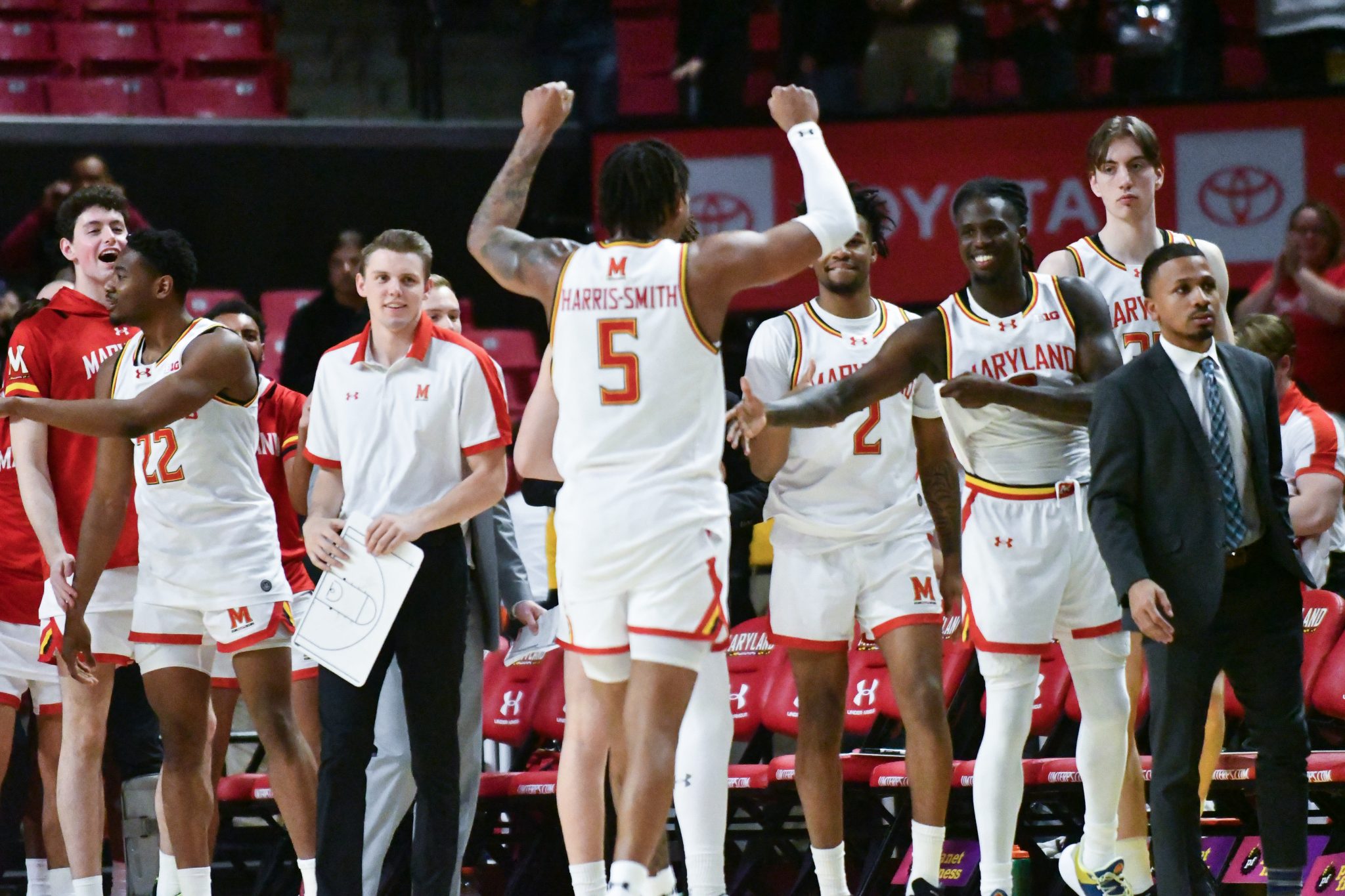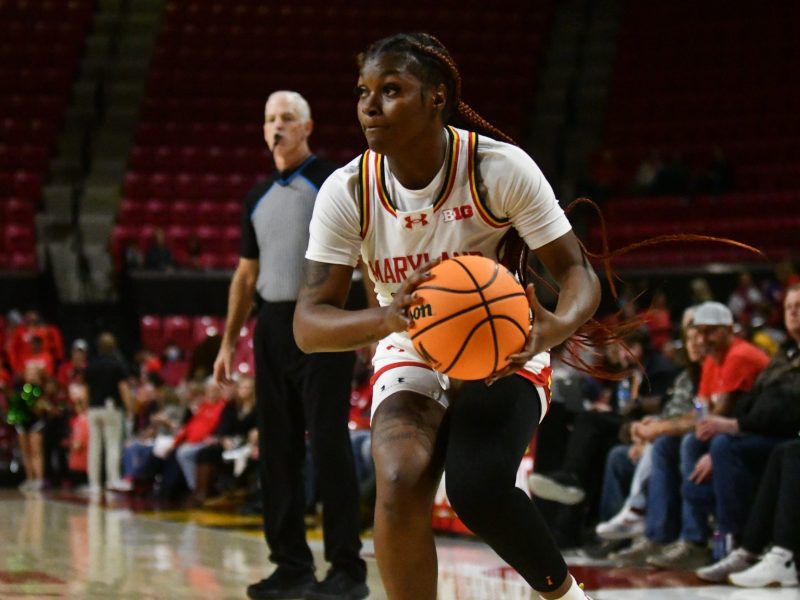Five-star big Derik Queen’s commitment to Maryland men’s basketball on Wednesday was undoubtedly the program’s largest recruiting coup under coach Kevin Willard and its biggest splash in almost a decade.
The 6-foot-10 Baltimore native is the Terps’ second-best recruit of the 21st century, per 247Sports’ composite rankings.
The waiting and worrying is over. Queen is a Terp, and brings an already-advanced set of skills with him. But questions remain about his fit with the rest of the 2024 roster — one with glaring flaws that still need to be addressed.
Queen has good hands and is a quality rebounder, passer and ball-handler. He’s not a particularly explosive athlete and isn’t a traditionally powerful or dominant center near the basket.
His polished finishing skills allow him to still be effective near the rim, where he scores most of his points. Queen is averaging 16.7 points, 7.8 rebounds, two assists and one steal per game in his senior season at Montverde Academy.
Queen and junior forward Julian Reese, who projects as Maryland’s only returner averaging more than seven points per game, will likely pair together as the starting frontcourt.
The two, along with freshman guard Jahnathan Lamothe, already played together at St. Frances Academy during the 2020-21 season. Queen later transferred to national powerhouse Montverde Academy.
Reese offers a potential model for Queen’s role in Willard’s offense. The junior often acts as the Terps’ offensive hub, getting the ball to set up dribble handoffs near the three-point arc or catching the ball rolling off of screens he sets at the perimeter.
[Close losses ended Maryland men’s basketball’s NCAA tournament hopes]
Queen could easily fill that role. That frees up Reese, the more dynamic athlete of the two, to battle in the paint and be the potential recipient of Queen’s pinpoint passes.
Even with all his strengths, Queen remains an imperfect and still-developing player, with flaws that will require creative solutions.
On defense, Queen’s lack of speed might be a concern in Willard’s switch-heavy defense, especially if he and Reese are on the floor at the same time. In high school, Queen was often utilized in drop coverage, in which the defending big man sags back into the paint to protect the rim.
The Terps also play drop coverage with Reese, a potentially concerning overlap between the two frontcourt players. Reese has been more capable of switching when he’s forced to.
The two also share another troubling similarity: they can’t stretch the floor. That’s bad news for a Terps’ team that ranks 338th of 362 Division I teams in three-point percentage. They are also set to lose two of their best three-point shooters in Jahmir Young and Donta Scott, who have combined to make 56.7 percent of the team’s threes so far this season.
Maryland doesn’t return any players averaging at least one made three-pointer a game.
Freshman DeShawn Harris-Smith, who has started almost every game this season, is shooting 17.6 percent from deep. Fellow freshman Jamie Kaiser Jr. — averaging 19.1 minutes per game, the sixth-most on the team — is shooting 24.8 percent from behind the arc.
[Maryland men’s basketball lands commitment from five-star big Derik Queen]
Chance Stephens, who transferred to Maryland from Loyola Marymount, has missed the entire season so far with a patellar tendon tear but shot 37.4 percent from deep last year.
Even if Stephens returns and makes an immediate impact, the Terps still need to add shooting or have returners improve to give Reese and Queen space to work.
They currently have no space to adjust the roster. Queen fills the last of Maryland’s projected scholarship spots for next year and Maryland will need transfers out to fill its needs. The Terps were in a similar predicament last year before the departures of Pavlo Dziuba and Arnaud Revaz.
They’ll need a new point guard after Young graduates. Willard will presumably try to fill that starting spot with an experienced player who can shoot and distribute the ball. Maryland needs an immediate contributor with an otherwise young roster.
The good news is Willard’s found such a player before in Young. The coach’s ability to secure a similar caliber of player could ultimately determine the 2024 Terps’ fate. It’s a difficult task.
Willard will need a strong 2024 after this year’s disappointment, which is all but over.
He made early history as the first Maryland coach to lead the Terps to the NCAA tournament in his first year at the helm and expanded on that success with a first-round victory over West Virginia. His struggles this year burned through some of that early goodwill.
Landing Queen somewhat relieves that pressure. There remain questions about his fit, and he doesn’t solve all of Maryland’s problems.
But his eventual arrival to College Park instantly gives the Terps an infusion of star-level talent they haven’t had from a commit in years.



